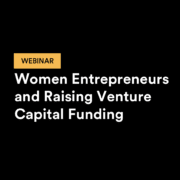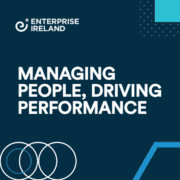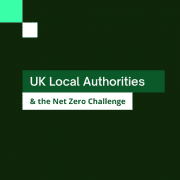Whether they’re in aviation or agritech, education or healthcare, or indeed innovating in any sector, export-focussed Irish firms should take the time to examine the vast opportunities offered by India.
“Irish companies can’t really afford to ignore a tech-savvy, increasingly English-speaking market of this size,” says Ross Curran, Director, India and South Asia at Enterprise Ireland. “India should be on the agenda of any Irish firm keen to expand internationally.”
This is indeed a huge market, with a population of more than 1.4 billion, meaning it will soon be the most populous in the world. It also has a rapidly growing middle class of 300m people, meaning it’s well on the way to becoming the third largest consumer market in the world by 2025, as forecast by Boston Consulting Group.
It has also been among the fastest growing economies in the world in recent years, with a growth rate of over 7% forecast this year. “It’s also a young country,” says Curran. “More than half the population is under 30 and this has led to a ‘demographic dividend’, which happens when economic growth follows an increase in the size of the working population.”
Understanding the opportunity for Irish firms
Exports to India by Enterprise Ireland client companies topped €145m in 2021. While exports from Ireland to India have been growing in recent years, that figure still represents a fraction of the true opportunity for Irish firms.
This was clearly evident at the recent India Ireland Business Seminar in Dublin, when Indian business leaders, corporate executives and academics joined Enterprise Ireland client companies and universities to discuss potential collaboration and partnership opportunities.
“India is a dynamic and technologically advanced market,” says Curran. “It has the world’s most affordable data, for example, and this has underpinned a huge digital transformation in recent years.”
Aviation, agritech, construction, education, edtech, healthcare, ICT, and pharmaceuticals offer particular potential for Irish companies, he adds, pointing out that Indian clients in any sector will welcome any innovative digital solutions.
Government pushes for digital transformation
Indian government investment programmes such as the US$18 billion (€17.7 billion) Digital India initiative, for example, are also driving digital transformation and economic growth.
This is creating clear opportunities for Irish firms in IT services (hardware and software), fintech, shared service centres, knowledge services, data analytics, mobile and wireless services, business process management and IT consulting.
The Indian government is also investing US$7.5 billion in smart cities initiatives across 100 cities over five years. This points to further tangible opportunities for Irish firms with expertise in Internet of Things, artificial intelligence and cleantech, as well as energy infrastructure and management.
Shared language and cultural connections
Ireland and India are quite similar culturally, and there is already a 50,000-strong community of Indian-born people in Ireland, many of whom have come here to work for Irish companies.
“At Enterprise Ireland, we have seen many Indian graduates begin their career working here in Ireland before returning to India to open the Irish company’s India office,” says Curran.
While Hindi is the official language of India and there are 22 other regional languages, English is the predominant language of business, making India more accessible for Irish firms than any other markets.
“While people in business tend to speak English, localisation is key,” adds Curran. “Even the biggest brands in the world must do things differently when they go to India. They have to adapt to local cultural norms, traditions and preferences. McDonalds, for example, had to devise alternatives to standard menu items it sells in other countries.”
Tailoring your offer to the market
Pricing in this value-focused market deserves special consideration, which means sales prices typically need to be significantly lower than in more familiar markets. The sheer scale of India, however, means that developing a bespoke market entry strategy is worth the effort.
Furthermore, this is a diverse and complex market. It’s a democracy, but the process of liberalising the economy only began gaining momentum in the 1990s. Those business reforms are still ongoing and some sectors remain protected. There can also be challenges in the form of red tape and administrative burden in some sectors.
The complexity and scale of the Indian marketplace means it is vital for Irish companies considering India as an export market to work with Enterprise Ireland from the earliest stages.
“Our market advisors can be the gateway to local knowledge and expert advice, which can help your company to determine if your offering would be suited to the Indian market,” explains Curran. “We can also help to identify local partners and distributors, a key success factor in India.”
From our Enterprise Ireland office in Mumbai, our team is always available to support Irish companies interested in building their presence in India with local market knowledge and expertise. Learn more about the opportunities for Irish firms in India.














